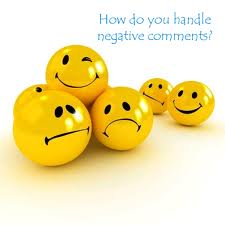First of all, we’d like you to remember that whatever you did last night is not your fault. It’s your boss’ fault.
Your boss provided a party. He provided a party with alcohol. It was your job to enjoy said party and consume the alcohol. You were merely fulfilling a job description. Anyone who was sober enough to remember what you were doing and start criticising you for it should be reported immediately to their superiors for not giving the evening their full participation and support. And, for being really, really boring.
Having said that, if you were really badly behaved it’s entirely possible that you might be in for a bit of stick at the office today. Lie still under the duvet for a moment while we guide you through how to deal with everything.
What Happened?
The first thing you must do is assess the damage. Look around. Can you gauge any clues from your immediate surroundings? Are you in a skip? Are you on an operating table? Do you recognise that ceiling?
If you’re at home, well done. Look next to you. Is there anyone lying there? Look under the duvet. Is there anyone under there? If there is then maybe they can throw some light on things.
What to Worry About
The following are bad things at parties:
• Inappropriate bodily emissions in an inappropriate place.
• Indecent exposure. This is also bad (unless you’re exceptionally well-endowed and/or you’ve just invested in major cosmetic surgery).
• Arson isn’t clever, either.
• If there is someone under the duvet and they are the boss’s wife/husband that could be an issue too. If the boss is in there with you, however, then happy days. You are in for a pay rise. If you are in bed with your boss and his wife make it a large pay rise.
Physical Damage
Get up and look in the mirror. Is there any physical damage which will need disguising with clever accessories?
Your Return to the Office
Do not pull a sickie. It just delays everything. Your strategy should be to get in early, control the rumours and, if possible, try and find someone who was worse than yourself so you can all start talking about them instead.
Your one white hope is that perhaps everyone else was too drunk to remember it. You will know within three seconds of pushing open the office door whether this is the case.
If you are responsible for any embarrassing stains or spills on other people’s clothes we recommend an immediate and fulsome apology together with an offer to dry-clean. Don’t be offended if they come back with an angry ultimatum that you should also book into a clinic and dry out.
Move the conversation quickly on to someone else. If you were the worst-behaved person at the party simply make up something about someone who isn’t in the office yet. Suggesting a lesbian liaison is always a good one – pick the two prettiest girls in the office and people will soon forget about what you did.
Checklist
- Go for sympathy. Mumble the following: ‘I’m so sorry. I was on medication and I shouldn’t have mixed it with alcohol. I tried not to.’
- Claim you’d had bad news and were self-medicating with alcohol.
- Nobody will believe you if you say your drink was spiked.
- Cheer up. At least you’re not pregnant.
- Might you be? The morning-after pill still works after seventy-two hours.
The main thing about partying mishaps is that everybody goes through them at some point. Forgive yourself. We’ve all been there.
Remember that you’ll only be a figure of fun until it’s the next person’s turn to disgrace themselves. See if anyone in the office is up for a hair of the dog at lunchtime and hopefully you’ll get the office gossip moved on to them instead.
Excerpted from the Little, Brown Book Group website (littlebrown.co.uk)
For some fun visuals, Click here:
http://www.scribd.com/fullscreen/75472646?access_key=key-qwpo996h46zs3rw0169

